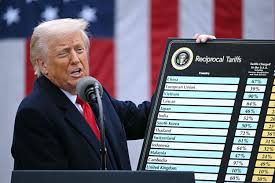Alex Omenye
The Central Bank of Nigeria has announced that mobile money operators, including fintech firms like OPay, Palmpay, Kuda Bank, and Moniepoint, will resume enrolling new customers “in the coming months.”
CBN Governor, Olayemi Cardoso, made this statement on Tuesday during the 295th Monetary Policy Committee (MPC) meeting of the apex bank in Abuja, where the MPC increased the interest rate from 24.75 per cent to 26.25 per cent.
Cardoso mentioned that the CBN has been in discussions with many of these operators regarding the necessity to enhance their operations.
To combat money laundering and illicit financial flows, the apex bank has proposed “remedial measures to assist the sector in strengthening onboarding processes for both new and existing clientele.”
Leaders of these neobanks met with the NSA, the Economic and Financial Crimes Commission, and the Central Bank of Nigeria in Abuja on April 26.
During these talks, the fintechs were given conditions to meet before they could start adding new customers again. If the discussions do not progress, it could slow down the growth of these venture-funded neobanks, which have seen a surge in digital payments.
Neobanks were asked to limit peer-to-peer crypto transactions. This aligns with a plan to ban P2P crypto trading, which was classified as a “national security issue” by the NSA. However, one neobank executive said it would be difficult to implement because there’s no way to tell if a transaction is related to crypto.
Despite this challenge, Neobanks have notified customers that P2P transactions will be blocked and reported to authorities. They have also been asked to update customer details and mandate bank verification numbers or national identity numbers for all tiered accounts, as per a December 2023 directive aimed at strengthening KYC processes.
Recently, Palmpay and Kuda asked customers to complete facial recognition verification and provide proof of house addresses, respectively, before a deadline in May. Other neobanks are expected to follow suit in updating customer details.
These conditions will require fintechs to improve their KYC processes and comply with the CBN’s new rules. They also signal a shift in regulators’ attitudes towards crypto-friendly fintechs.
The government’s tough stance on crypto trading intensified after the arrest of two Binance executives in February 2024 and the blocking of 1,146 bank accounts involved in unauthorized forex dealings by the EFCC in April.
Despite attempts to unite and lobby the government, fintechs and crypto players have little leverage in these discussions. This is in contrast to traditional banks, which cooperate and have some influence with regulators.
For affected fintechs, the lifting of the ban cannot come soon enough.










